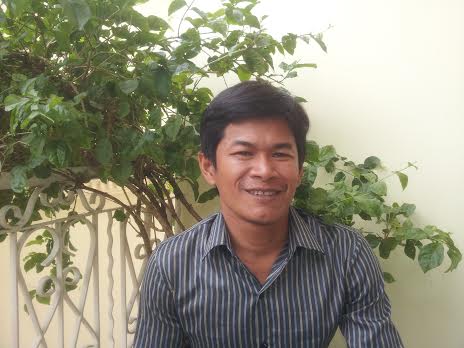(ASIA) What is really at the heart of World Renew’s calling to show compassion to the poor? I think that respect and striving to impact the root causes of poverty are two of the keys. First, we try to work respectfully across cultures, races, and religious ways of life—because of the image of God in all humanity. One of the ways this respect becomes visible is when we work with partnering organizations around the world that share values and vision with us.
I think that respect and striving to impact the root causes of poverty are two of the keys. First, we try to work respectfully across cultures, races, and religious ways of life—because of the image of God in all humanity. One of the ways this respect becomes visible is when we work with partnering organizations around the world that share values and vision with us.
At the community level, two of the main ways that interpersonal respect manifests itself are in requiring self-reliance and in the amazing multiplication effect that self-reliance produces. This is Biblical: Elisha’s question to the poor widow facing starvation was “What do you have in your house?” Jesus’ question to his disciples facing a crowd of hungry people was “What do you have to give them?”
Here are a couple of recent examples from Asia that illustrate the ways that respect in relationships expresses itself in self-reliance that transforms people. The full stories can be found in our ASIA NEWSLETTER. Check it out!

Second, in Bangladesh World Renew works with a community organization named Prottasha (“Hope”). Prottasha works with a man named Nurul Islam, whose neighbors called him “Sholo Kamla” meaning “sixteen different jobs” Nurul had only a little land and worked many jobs to survive. His wife Momena joined a women’s saving group with Protasha. Nurul applied for training in growing rice, composting, and cultivating vegetables, and then joined a men’s saving group. Now Nurul is a full-time farmer, has enough food, and nobody calls him “Sholo Kamla” anymore!
As we build the respect into our systems that results in growing self-reliance among our program participants, we can also address the underlying causes of poverty, as demonstrated by the next few stories.

And three village leaders—Sanlong, Sianghung and Siangyan—appreciatively talk about what the new roads and a motorcycle trail mean for their villages. Now, the nurse can reach the sick, the sick can be transported to the hospital, more people can remain in the village because they can market their produce, and villagers can join together to build and maintain the roads! This is the fourth story.
Fifth and finally, in Patarkhama in northeast India, the Eight Sisters Farming Club is a group of 31 women from the Garo people group who have overcome one of the root causes of the poverty they endured in the past. Their mountainous land was worn out from repeated burning and erosion. They have restored their part of God’s creation by planting erosion-control hedges, a concept that is part of the SALT techniques (Sloping Agricultural Lands Technology), taught to them by World Renew’s partner, the Northeast India Commission on Relief and Development. The work was supported by financial help from Foods Resource Bank to World Renew.
The Garo women learned the techniques of improving rice production, called System of Rice Intensification (SRI) on the small parcels of flat land that they farm. Between the sloping land and the flat land parcels, these women have now secured a full year’s supply of food for their families!
Tom Post
Team Leader
World Renew Asia
